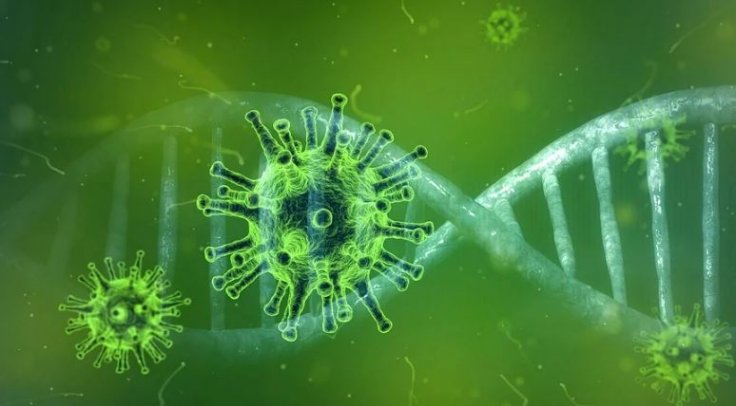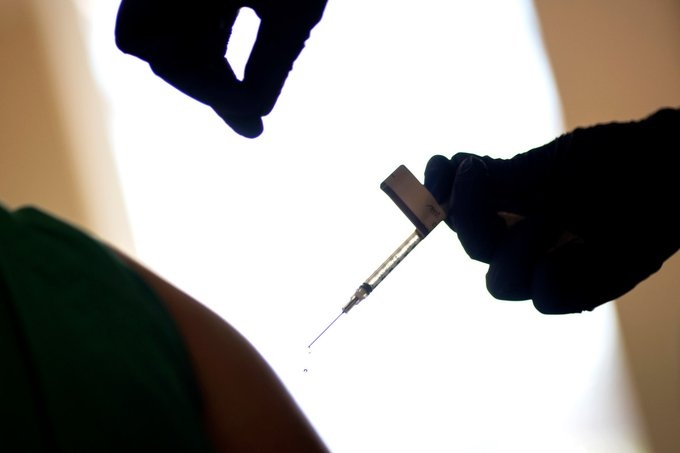The emergence of new variants of novel Coronavirus is raising concerns among the researchers. While many are worried about whether current vaccines will work against these variants or not, a UK doctor has highlighted the possibility of annual vaccination considering the nature of the continuously mutating virus.
The fast-spreading and more transmissible Coronavirus variants, which researchers fear could make people severely ill or affect the vaccine efficacy, threatened to extend lockdowns while causing more hospitalizations.
"We're living in a world where Coronavirus is so prevalent and rapidly mutating that there are going to be new variants that pop up," said Anthony Harnden, a physician who advises the UK government. The healthcare professional also said that the world may face a situation when people will need an annual Coronavirus vaccination to cope with new variants.

The Variants Around
The UK variant has emerged as the main concern. It has spread across the UK. The country's health secretary, Matt Hancock, said it's a long way before COVID-19 cases would be low enough for restrictions to be lifted.
Apart from the UK variant, in recent months other mutated versions of the virus were found in South Africa and Brazil. The top infectious disease expert in the US, Anthony Fauci, who is now President Joe Biden's chief medical adviser for the pandemic, said that the US authorities need to expand genomic surveillance to identify variants of the virus.
While talking about vaccine efficacy and new variants, the American expert said: "What we likely will be seeing a diminution in the efficacy of the vaccine — more in South Africa than the UK."
"What we will do and are doing already is making preparations for the possibility that down the pipe, down the line, we may need to modify and upgrade the vaccines," said Fauci. He also explained that the best way to prevent further mutation is to vaccinate as many people as possible with the currently available vaccine.
As per Jeffrey Barrett, who is the director of the Covid-19 Genomics Initiative at the Wellcome Sanger Institute, the huge number of COVID-19 cases around the world has given the virus a lot of opportunities to evolve. Last week during an online seminar, Barrett said: "We are going to have to really contend with these new variants in the virus in the next phase of the pandemic." According to him, "something happened" which allowed a new constellation of mutations to arise and put scientists in a more challenging situation.
Delay in Normalcy

The new Coronavirus variants likely delay the time when the world can get back the regular normal life using vaccines. The more transmissible and more infectious variants compared to the first strain has raised the possibility of outbreaks even at a time when a large number of people are receiving vaccines.
Their emergence also forced world leaders to impose international travel restrictions. For example, when the UK variant, dubbed as B.1.1.7, was found, several countries all around the world announced a ban on flights from the UK.
Since many poor countries won't be able to vaccinate a massive number of their population within a shorter period of time compared to other nations, there will be a possibility that new variants will be evolving around the world.
Last week, Prime Minister Boris Johnson said that as per the early evidence, the UK variant which has already entered the US, maybe more deadly than earlier versions of the virus. This assessment came after mathematicians compared death rates between people infected with the new and old versions of the Coronavirus.
While no evidence has found to support claims that the UK variant is more resistant to vaccines, scientists are worried about the South African variant which includes a mutation that could lower the effectiveness of vaccine doses. However, healthcare experts assured that if required, adjustments could be done in a vaccine to make them effective against new variants.
However, the idea of annual vaccination is not new. In the case of influenza viruses, annual vaccination is required to cope with new variants. When it comes to COVID-19 causing virus, it appears to be mutating frequently enough to suggest that people taking vaccine doses may need further shots periodically to keep themselves protected from the virus.









